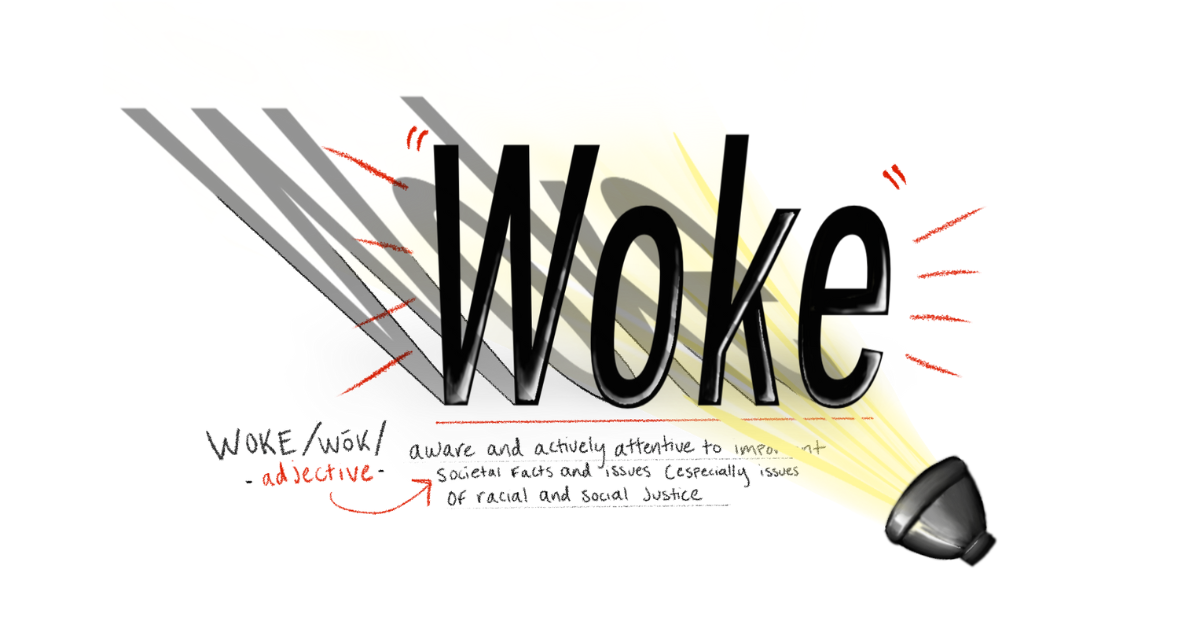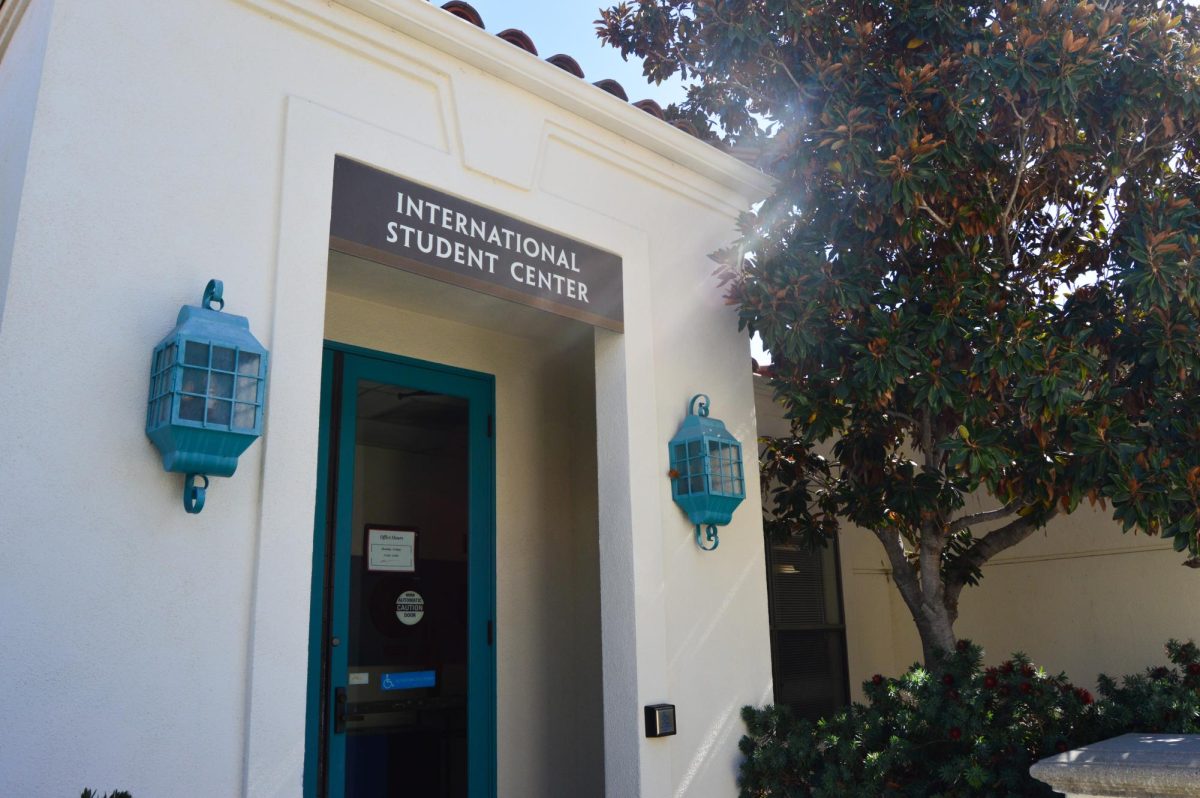If you’re chronically online like me, you’ve probably seen a particular four-letter word frequently pop up in political discourse.
Woke.
It’s been used by Cancun vacationer Sen. Ted Cruz and real-life Disney villain Gov. Ron DeSantis, among many other conservative personalities. They have labeled M&M’s mascot redesigns, Target’s pride collection, Star Wars’ casting and NBA athletes’ activism as “woke.”
Can’t I just eat M&M’s, shop, be a nerd and watch basketball in peace?
All of this discourse has raised an important question: what does the word even mean?
The answer lies nearly a century ago.
The term “woke” was first used in the ’30s in Black communities as a way to describe social consciousness. It was utilized in songs, stories and protests. “Wokeness” signaled an awareness of injustice. In some cases, “woke” ideas led to reform and reconstruction.
From there, the definition of “woke” has evolved. So has its use — and misuse.
In 2014, in the midst of Black Lives Matter protests against police brutality for the killings of Michael Brown and Eric Garner, the word “woke” was a rallying cry against injustices hurled toward communities of color. The word was even added to the Oxford English Dictionary in 2017.
As the word gained prevalence, online movements grew as well, beginning with the “#staywoke” tag becoming often used on Twitter.
The music industry took notice, too, as Childish Gambino’s smash hit, “Redbone,” was centered on the phrase.
However, in 2020, a shift took place.
The word quickly became weaponized and lumped together with political buzzwords such as “social justice warrior,” “cancel culture” and “leftism.” It grew in popularity among Western societies, particularly between the right and moderate voters. Today, “woke” has become a catch-all term for everything deemed progressive.
In modern political discourse, the term “woke” is imprecise, overused and often problematic. It’s an opaque political boogeyman that pundits and politicians struggle to define.
When Ryan Newman, DeSantis’ general counsel, was asked what it meant to be “woke,” he defined it as “someone who believes that there are systemic injustices.”
Well, yeah. The United States has a long history of systemic injustices.
A few injustices in America include redlining, uneven prison sentencing and disparate education funding in districts serving students of color. Conversations surrounding any of these topics inevitably circle back to reparations or widespread reform — two hot-button issues in the world of politics. Any notion of radical change is met with the same one-word retort: “Woke.”
In the past few years, some politicians have gone as far as introducing legislation to combat the vaguely-defined idea of “wokeness.”
No politician has been more aggressive than DeSantis, who pushed the Stop Woke Act, a piece of legislation that seeks to push back on “corporate wokeness” and one of the most controversial topics in education: critical race theory.
These policies are vague and broad, giving governors like DeSantis the freedom to define multifaceted curricula and ideology in a single, reductive word. The official pamphlet for the policy promises to stop schools from “hiring woke CRT (critical race theory) consultants,” and says it “strengthens enforcement authority of the Florida Department of Education.”
No precise measures are given, and “woke” is only defined as “wrongs to our kids and employees.” Whatever falls short of an idealized, post-racial society is labeled with that one word.
Some Republican politicians have rebuked the use of the term “woke” in national politics, namely former steak salesman (and former President) Donald Trump.
However, in sum, the careless use of the word “woke” has become commonplace in political discourse. More concerningly, it will likely stay that way. Politicians and pundits rarely discuss topics like racism and sexism with subtlety, and many have egged on the use of the word through their speeches and public appearances.
Although few politicians can accurately define “wokeness,” they seem intent on dismissing progressive and reform-focused discussions at the door of Congress.
Words carry power and are extremely malleable. In the current political landscape, buzzwords have become undeniably effective — they’re easy to say, and they will draw a big reaction from people who wholeheartedly agree and others who vehemently disagree.
We have to be more precise with our words and embrace nuance.
If deconstructing social injustices and desiring to stop them is “woke,” perhaps “wokeness” isn’t the threat many make it out to be.







